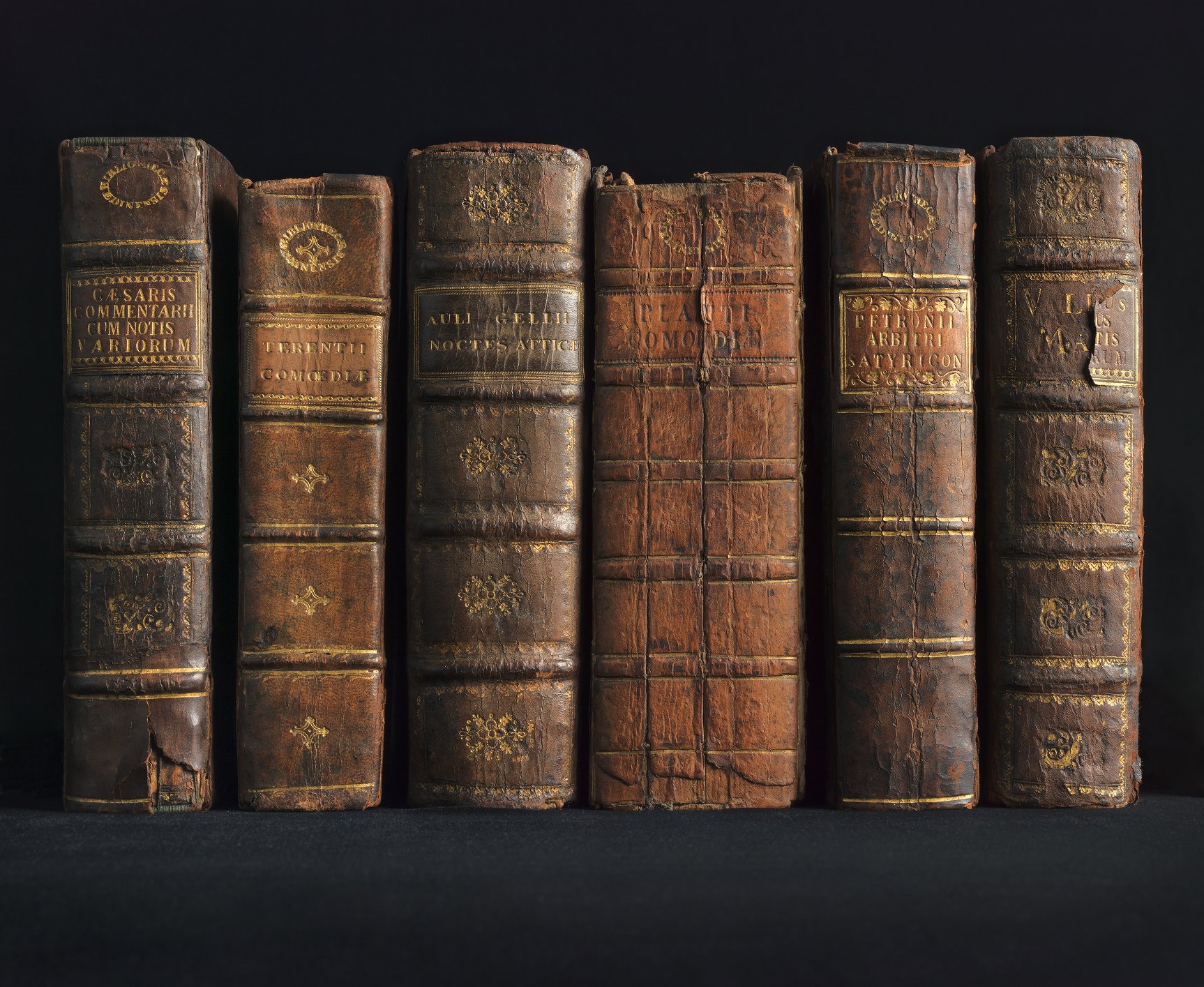 Since April I have been an intern with the University of Edinburgh’s Cultural Heritage Digitisation Service (CHDS) and the Centre for Data, Culture and Society (CDCS), looking into text extraction processes at the University, both in library practice and thinking about how this is taught within digital scholarship. Throughout the internship I have had the opportunity to do both independent research and discussions with staff across the Library and University Collections (L&UC) to get a more in-depth understanding of text recognition processes.
Since April I have been an intern with the University of Edinburgh’s Cultural Heritage Digitisation Service (CHDS) and the Centre for Data, Culture and Society (CDCS), looking into text extraction processes at the University, both in library practice and thinking about how this is taught within digital scholarship. Throughout the internship I have had the opportunity to do both independent research and discussions with staff across the Library and University Collections (L&UC) to get a more in-depth understanding of text recognition processes.
Category: <span>Browse by School</span>
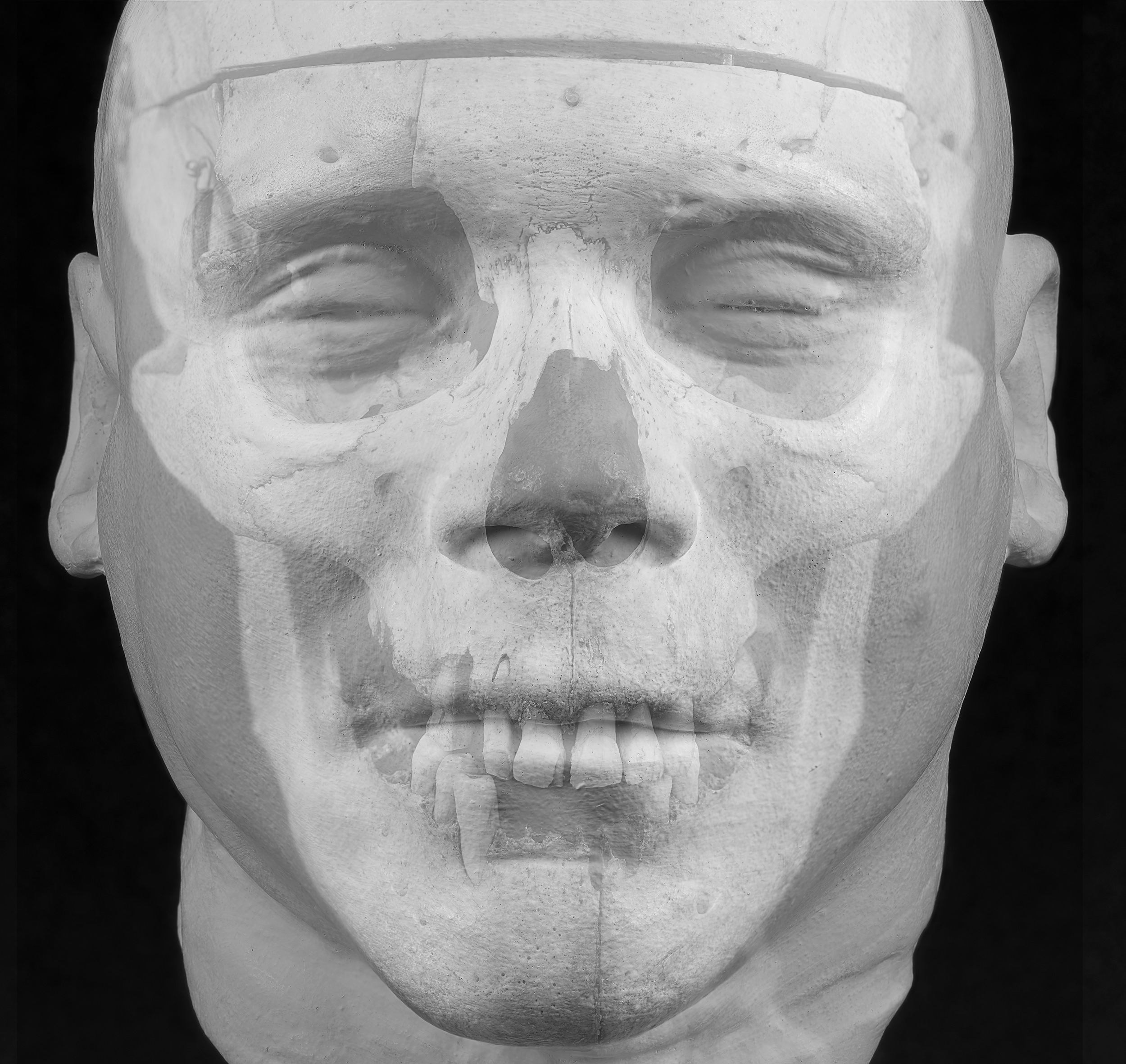
Last summer, I spent five days photographing the skeleton of William Burke to document recent conservation as a record for future collection care. The remains had been conserved and cleaned for the first time since the 1800s and the skeleton was going on display at the National Museum of Scotland for their 2022 exhibition “A Matter Of Death and Life“. I also photographed the life and death masks of Burke, Hare and Robert Knox (“the man who buys the beef”).
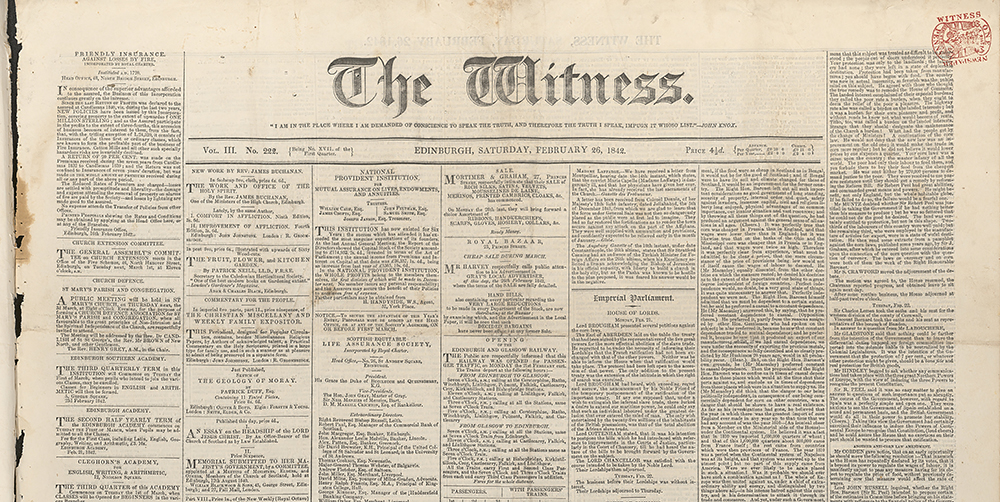
We have started digitising The Witness newspaper!
This twice weekly newspaper was created by the Church of Scotland in 1840 and edited by Hugh Miller (see https://en.wikipedia.org/wiki/Hugh_Miller ), an influential writer, geologist and stone mason. The Church of Scotland wanted a newspaper that reflected a Christian outlook, as well as news and comment from across Scotland. In 1843 The Church of Scotland was faced with 200 ministers walking out citing political interference, an event which came to be known as the Disruption, and led to the Free Church being established. Presbyterianism is founded on the basis that the people make the decisions, not an elite hierarchy, and the only head of the church, is God. This makes The Witness newspaper a fantastic primary source covering a significant event in Scotland’s social and religious history, and as such, a prime candidate for digitisation.
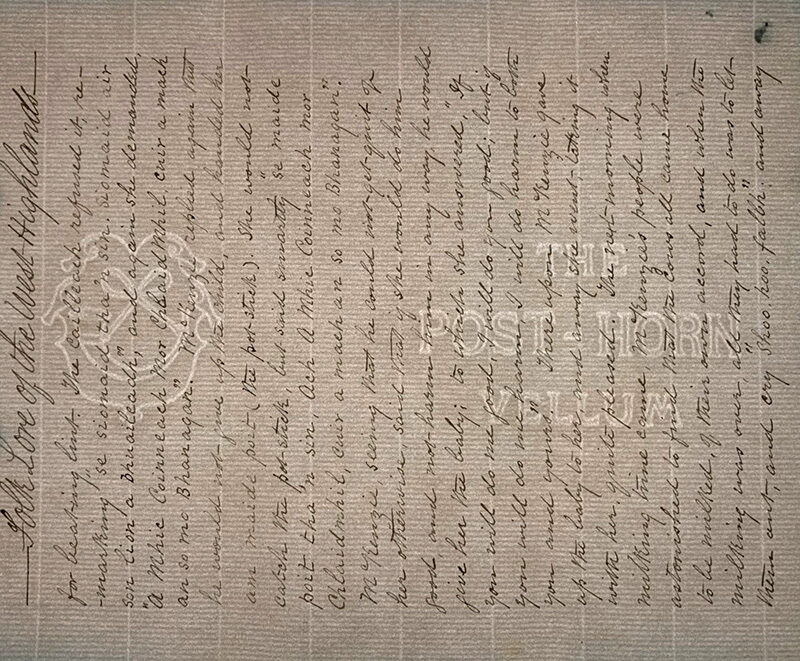
Have you ever been stuck for a good nursery rhyme to tell your kids? Or needed a cure for a headache that just will not go away? Or perhaps you’ve found yourself wondering – what is the best way to protect my butter from being cursed by witches? If the answer to any of these questions is yes (or possibly “why would a witch curse my butter?”) then let me introduce you to the collection recently digitised by our Cultural Heritage Digitisation Service team that can answer all these questions and more – the Maclagan Manuscripts.
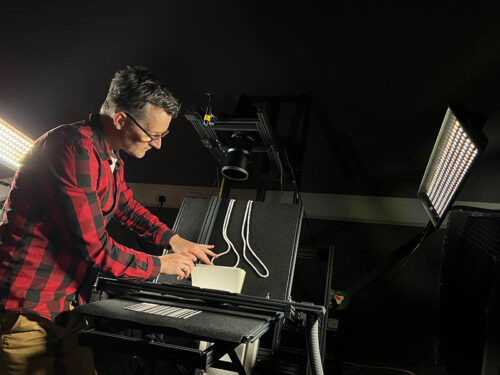
I was delighted to take on the challenge of helping photograph the University’s collection of notebooks of geologist Sir Charles Lyell, and there’s a bit more to photographing 300 notebooks than one might imagine. The Cultural Heritage Digitisation Service is a fantastic team of people, and quickly welcomed me onboard. Prior to this posting, I’ve enjoyed a varied background, including photographing the contents of National Trust for Scotland castles as part of a major digitisation project Reveal, plus Polar and Northern Lights photography aboard expedition cruise ships.

In November 2019 the Library excitedly welcomed Sir Charles Lyell’s two hundred and ninety-four notebooks into its Special Collections. With support and funding from leading institutions, groups and donations pledged from over 1000 individuals, this tectonic acquisition meant the notebooks were able to stay in the UK and join the Library’s existing collection of Lyell-related materials. As part of the DIU team, I was lucky enough to photograph Lyell’s notebooks, working with the world’s finest quality cameras to digitise a previously private collection into the public sphere and beyond.

This past Winter 2019/20 the Digital Imaging Unit and Centre for Research Collections Museums teams hosted two student interns to support the development of the new Digital Wall, which opened in the University of Edinburgh’s main Library in September 2019. The students, Dario Lucarini (Napier University) and Tom Hutton (Edinburgh College of Art), were tasked with
Guest post by Meg Dolan (MScR Collections and Curating Practices, 2020) and Keith Bossert (MSc History of the Book, 2020)
This summer we had the opportunity to intern with the Digital Imaging Unit, working under Photographer, Juliette Lichman, and DIU Manager, Carla Arton. Due to COVID-19 we worked remotely to expand and update the DIU’s web presence on the University’s Main Library page, a service development project related to their larger Digitisation as a Service Strategy.
The project was divided into 5 phases:
- Pre-Planning and User Experience Research & Analysis
- Planning and Training
- Design and Creation
- Usability Testing and Tweaking
- Publication

Phase 1: Pre-Planning and User Experience Research & Analysis
In Phase 1, we viewed the websites of similar digitisation departments across other academic and research institutions. This allowed us to
The Art Collection acquired one piece from Dong Ding’s sculptural jewellery collection Boundary of Balance; a series of works which explores the relationship and tension between balance and imbalance. Each of the carefully crafted kinetic pieces can be worn in multiple ways – disassembled and re-assembled by the wearer – with interchangeable and detachable details such as rings, tie pins and earrings integrated into the overall composition.
The movement of each piece is influenced by these counterbalanced components, as well as by the body and actions of the wearer. Sharing a passing resemblance to historical navigational tools, the works come accompanied with bespoke laser cut instructions identifying the multiple permutations for the wearer. Julie-Ann Delaney Art Collections Curator University of Edinburgh.
“A piece may contain hidden details and contrasting elements of weight and material. The work is kinetic with moveable parts that invite play. Movement is influenced by counterbalanced components, interchangeable parts and the wearer’s body movement. Through interaction with the work, the wearer is invited to play with the tension between balance and imbalance.” Dong Ding.
Museum Collections Manager Anna Hawkins outlined the photography and handling of the complex object. Multiple images were required to accurately record the condition of the piece at point of entry into the Museum Collections. This included two views of the whole object back and front and in addition back and front views of each individual part of the object in isolation.
To achieve a detailed representation I employed focus stacking to achieve the consistent detail. This involves taking multiple images at different focal lengths and aligning these images to create one image with overall focus. Below is a selection of some of the images captured. I have included partial details to demonstrate the capabilities of our medium format cameras. The resulting Tiff files are delivered to the Museum Collections team in excess of 100Mb which can be used for condition checking and allowing detailed object examination. These images are also suitable for publication, broadcast and social media.

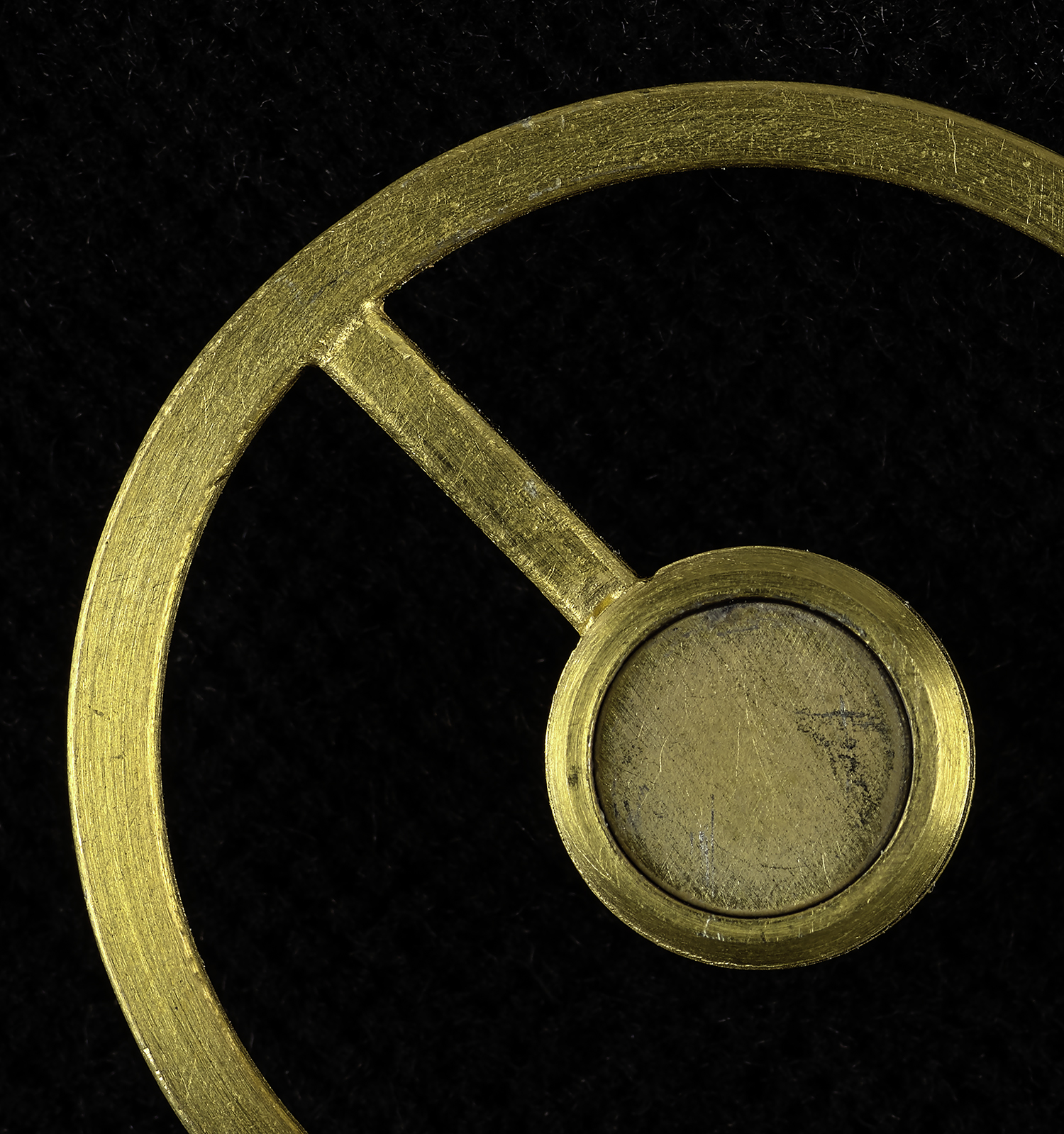

I was lucky enough to be involved in the Incunabula pilot project here in the Digital Imaging Unit. This project helped to create a digitisation workflow for Incunabula collection items using the i2S CopiBook v-shape scanner. These bound volumes are printed using a variety of early printing methods including wood block printing resulting in beautifully crafted and illustrated objects. This project afforded an opportunity to get up close and personal with these beautiful and often entertaining treasures, that were quite literally being brought into the light through the capture of images.